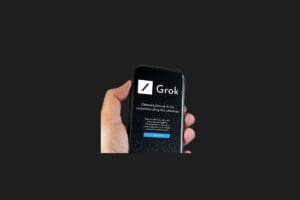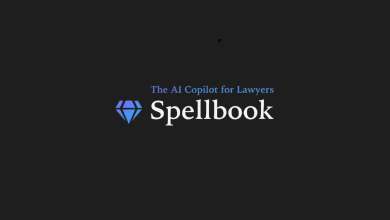
The SEO landscape is unmistakably being reshaped by the advent of artificial intelligence (AI). An increasing array of businesses is weaving AI-generated content into their digital platforms.
In recent years, there has been a notable uptick in the availability of AI-powered writing tools online. These tools claim to produce high-quality website content much more quickly than traditional methods. Yet, the critical question remains: Is using them a wise strategy? And how might they impact Google search rankings?
Whether you’re a writer, blogger, e-commerce entrepreneur, digital marketing enthusiast, or a social media expert, considering the benefits and potential downsides of utilizing AI-generated content for SEO purposes is essential. In this article, we’ll explore both sides of this discussion and help you determine if AI-driven content creation is in line with your business goals.
What Does AI-Generated Content Entail?

Content produced by artificial intelligence utilizes natural language processing (NLP) algorithms. These algorithms analyze a given text and then create new content that reflects the original’s tone and substance.
To produce such content, one would use an AI writing tool. This involves inputting a topic and some relevant keywords into the tool. The AI system then sifts through a large database of text (such as a collection of articles) and crafts a new piece that adheres to your specified criteria.
Typical examples of AI-generated content include:
- Blog posts
- Social media posts
- Email marketing campaigns
- Product descriptions
- Promotional materials
- Website landing pages
Most AI writing tools provide a range of templates designed for different types of content needs. Before beginning the content creation process with a particular AI writing platform, selecting the appropriate template for your specific goal is recommended.
Generating Content via Artificial Intelligence Artificial

Exploring artificial intelligence provides a promising path for generating a wide array of content for websites. To start this journey, consider the steps below:
Choose an AI Writing Platform
With a plethora of AI writing solutions available, it’s crucial to find one that suits your specific needs. Dedicate some time to research and identify a tool that fits your budget and content volume expectations.
Select the Right Template
Based on the type of content you plan to create, choose the appropriate template. For example, opt for a blog post template if you’re aiming to write a blog, rather than templates meant for product descriptions or email campaigns.
Provide Contextual Information
AI tools excel when given detailed input. This information helps them produce content that aligns with your requirements. To make the content relevant to your business niche, provide the tool with a main theme and several pertinent keywords.
Start Content Creation
After setting up everything, let the AI tool generate the content. It can deliver a piece tailored to your specifications in a very short time, often just a few seconds.
Review and Edit
After the content is generated, it’s important to check it for any errors. Then, polish the draft to make sure it flows well, matches your brand’s voice, and feels authentic.
Remember, while AI can significantly assist in content creation, adding a human touch is essential for ensuring its authenticity and connection with readers.
Pros of Using AI Generated Content for SEO

Utilizing AI for content generation on digital platforms offers several advantages:
Efficiency and Ease
A primary advantage of using AI for content creation is its speed and ease of use. Tasks that might take hours manually can be accomplished in minutes with AI. For many content creators, producing several paragraphs can become almost instantaneous, leading to the swift completion of blogs or marketing copy.
Cost-Effectiveness
Hiring professional writers can be costly. According to Payscale, freelance writers typically charge about $25 per hour, with rates for high-quality content sometimes exceeding $50 per hour. Meanwhile, AI tools often cost between $20 to $100 per month, making them an economical option for those on a tight budget.
High Volume Output
AI enables the production of a large amount of content in a short period. This is crucial for those needing regular content updates but are time-limited. Many AI platforms use a credit system to determine the amount of content you can create, with options to buy more credits or upgrade plans for increased capacity.
Superior Quality
In some cases, content created by AI can match or exceed the quality of human-written work. AI tools can analyze extensive online content, identify trends, and produce new articles that reflect popular styles. For instance, AI writing assistants can be particularly helpful for those who struggle with English, ensuring the content is coherent and impactful.
Overcoming Creative Blocks
Writer’s block is a common challenge, where staring at a blank screen can feel overwhelming. AI-generated content helps overcome this by not only providing initial content but also suggesting ideas for future pieces, thereby easing the creative process.
While AI offers a revolutionary approach to content creation, it’s crucial to make sure the generated content genuinely reflects your brand’s voice.
Cons of Using AI Generated Content for SEO

Utilizing AI-Generated Content comes with its challenges:
Imperfection
Despite their advancement, AI tools are not without faults. They can sometimes err or miss the mark on context, making it essential to carefully review the content before making it public. Skipping this step could result in content that is inaccurate or lacks cohesion.
Risk of Impersonality
One common criticism of AI-generated content is its tendency to feel sterile or mechanical. These tools might not capture the nuanced intricacies of human expression, leading to output that can appear devoid of authentic emotion or personality. To mitigate this, spending time to refine the content to make it feel more natural is key. It may also be helpful to seek out AI platforms known for their ability to produce content that closely mimics human writing.
SEO Limitations
Using AI for content creation does not automatically ensure it will be optimized for search engines. Many AI platforms offer limited functionality for integrating keywords, which can be a drawback in the ever-evolving field of SEO. Acknowledging the significance of keyword variety and context is vital. After the content is generated, it’s advisable to manually incorporate relevant keywords or use specialized AI-driven SEO tools to improve the content’s search engine ranking potential.
In summary, while AI introduces a transformative method for generating content, it’s important to use it wisely to ensure the end result is both genuine and effective.
What Does Google Think About Artificial Intelligence Content?

Google’s Search Advocate, John Mueller, has made it clear that content created using AI techniques falls under the category of auto-generated content, which is viewed unfavorably in SEO terms. Websites engaging in such practices are at risk of facing manual penalties for violating Google’s webmaster guidelines.
Although Google has not yet claimed to automatically detect AI-generated content, nor has it outright banned its use, Mueller hints at a possible future openness to AI-driven writing. However, Google’s anti-spam team is skilled at identifying and penalizing low-quality, auto-generated articles.
It’s important to note that AI-generated content can still provide value to readers. If such content is useful and appreciated, Google’s algorithms may recognize and rank it based on its utility.
Achieving this positive outcome depends on using a high-quality AI content generator, closely monitoring the content creation process, and adding a personal touch to the content. Relying solely on AI to produce large quantities of mediocre content in hopes of quickly improving search rankings could lead to poor positions in search engine results pages (SERPs).
To use AI content generation for your business website without concern, make sure your content does not:
- Sound unnatural or robotic.
- Contain excessive filler words, phrases, or repetitive ideas.
- Provide false or unverified information.
- Lack clear structure or headings.
- Closely replicate existing online content.
- Omit relevant keywords.
In conclusion, instead of placing blind trust in AI content creation tools, use them as supportive instruments and refine the output to match your unique voice and quality standards.
Effective Strategies for SEO with AI-Generated Content:

To ensure your AI-generated content ranks well in search engines without attracting penalties, follow these best practices:
Avoid Budget AI Generators: While many content creation tools claim to enhance your content, not all deliver quality results, and some may even harm your ranking potential.
It’s wise to steer clear of free or cheap AI text generators, as these platforms often produce low-quality, keyword-stuffed articles that could lead to penalties from Google.
If you’re considering a proficient AI writing tool, be prepared for a bit of an investment. Top-tier AI platforms typically offer free trial periods, allowing you to evaluate the quality of the content they produce before committing to a paid subscription.
Choose Engaging Topics: The subject matter of your content is critical in attracting your target audience. Spend significant time considering the topic of your article and what will engage your readers. Leading AI content tools can also suggest topics.
Utilize keyword research tools to generate content ideas. These tools offer insights into popular online searches and highlight trending topics in your field.
Review and Polish Your Content Before Publishing: Regardless of using AI, it’s crucial to thoroughly check your article before it goes live. Make sure the content reads smoothly, is free from errors, and reflects your unique voice. Tools like Grammarly can aid in refining and proofreading your drafts.
Ensure the Accuracy of Information: Credibility with your audience depends on the reliability and accuracy of your content. This includes everything from statistics and company details to quotes.
Always perform a thorough plagiarism check before publishing. Many AI platforms include plagiarism detection features, while others can integrate with dedicated plagiarism checking software.
Be aware that depending on the AI tool you use, your content may unintentionally resemble existing online material. Such duplication can lead to severe penalties from Google.
Final Thoughts: Is AI-Powered Content Right for SEO?

While AI simplifies the content creation process, saving precious time, it’s crucial to proceed carefully to avoid penalties from Google. The focus should be on using high-quality AI solutions judiciously and always verifying the uniqueness of content before publication.
Following the advice provided here will enable you to skillfully utilize AI-generated content, placing you in a favorable position on Google and other search platforms. Dive in and discover the possibilities AI offers for your content requirements!











